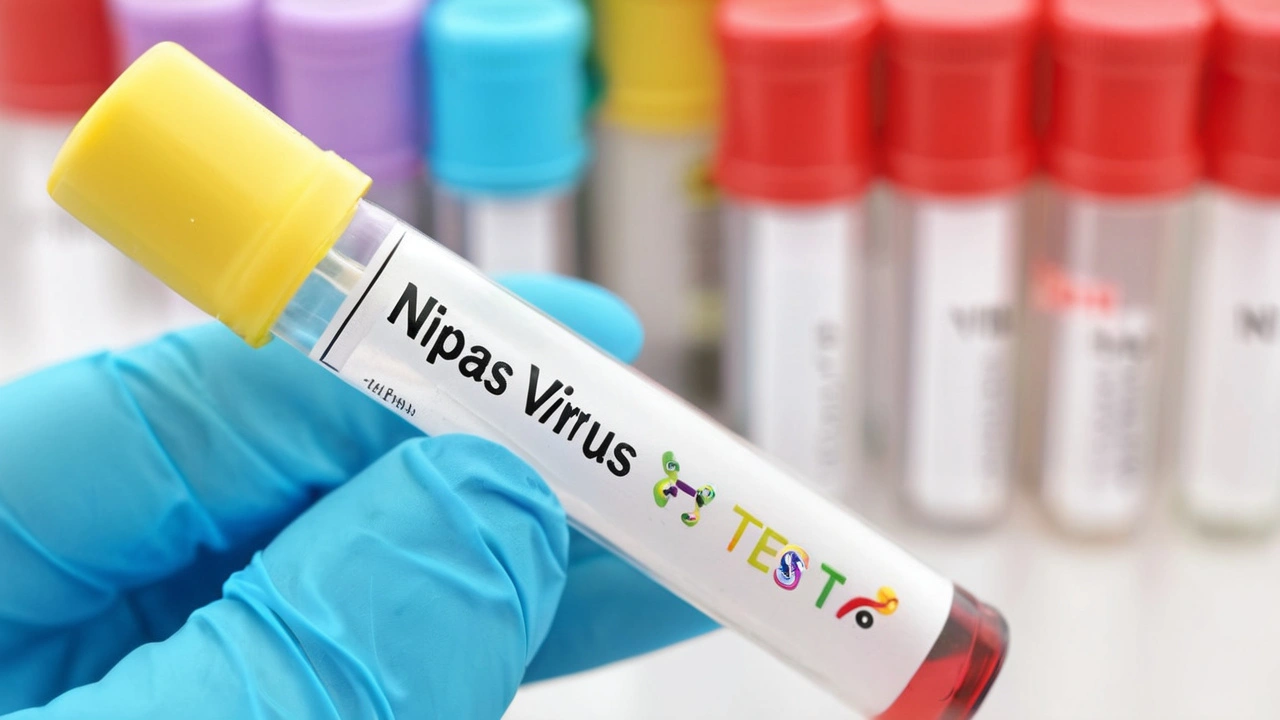
Nipah Virus Outbreak in Kerala: Health Officials Scramble to Contain Spread Amid Rising Concerns
Kerala, a southern state in India known for its tourism and lush greenery, is currently grappling with a disturbing health crisis. A 14-year-old boy recently succumbed to the Nugah virus, an uncommon yet incredibly dangerous pathogen. The state’s health officials are now in a race against time, working tirelessly to control its further spread. At the forefront of the battle is Health Minister Veena George, who has been providing regular updates and urging the public to remain vigilant.
Following the boy's tragic death, immediate actions were taken to trace and monitor those who had come into contact with him. Health workers compiled an extensive list of 350 individuals, thoroughly categorized to understand the risk levels. Among them, a subset of 101 people is considered high-risk, including 68 healthcare workers. These frontline workers had interacted with the young victim either in hospital settings or while conducting medical examinations.
Human Interaction and Contact Tracing Efforts
Contact tracing has been an arduous yet crucial task. It's particularly concerning that six individuals from districts Palakkad and Thiruvananthapuram may have also been exposed. This group includes two hospital staff members and four individuals who had sought treatment at the same medical facility as the boy. Test results for 13 close contacts are still pending, with six already displaying symptoms that align with Nipah virus infection.
In an alarming revelation, the boy had also traveled on a private bus while showing symptoms of the virus. This information has pushed the health department to issue alerts to all passengers who were on board that day. Authorities are meticulously scanning through security footage and ticket sales to identify and inform these passengers about taking necessary precautions.
Origin of the Virus and Preventive Measures
Investigations into how the boy contracted the Nipah virus are actively ongoing. According to preliminary findings, it might be linked to the consumption of fruits from a bat-frequented field. Bats are known carriers of the virus, and a similar mode of transmission has been observed in prior outbreaks of the Nipah virus. To get a more comprehensive understanding, a team from the National Institute of Virology is en route to Kerala to study the local bat population.
The state has swiftly enacted preventive measures to contain the outbreak. Masks have been made mandatory in public spaces within the affected districts. Moreover, all identified close contacts will undergo a compulsory 21-day isolation period, during which they will be closely monitored for any developing symptoms. Health Minister Veena George emphasized the crucial need for public cooperation in following these health directives.
Public Health and Safety
The local government has been proactive in mobilizing resources. Community health workers are visiting homes to educate residents on the importance of hygiene and the use of personal protective equipment. Schools in the affected districts have switched to remote learning to minimize contact, and public gatherings have been significantly reduced to curb the potential spread.
Moreover, the state is ramping up its healthcare infrastructure to deal with possible new cases. Temporary quarantine centers are being set up, and additional medical staff are being trained to handle Nipah virus patients. The health department is also urging citizens to report any symptoms of fever, headache, dizziness, or respiratory issues immediately to dedicated helplines.
Challenges in Managing the Crisis
One of the biggest challenges in managing this outbreak is the symptom overlap between Nipah virus and more common viral infections, such as dengue or malaria, which are also prevalent in the region. The state’s laboratories are under immense pressure, working around the clock to conduct tests and differentiate between the infections. Local pharmacies have seen a surge in demand for personal protective equipment, such as masks and gloves, leading to temporary shortages in certain areas.
Adding to the complexity is the psychological toll the outbreak is taking on the community. Fear of the virus has led to significant mental stress among the residents, and mental health professionals are being called in to provide counseling services. The government is also combatting misinformation that is spreading quickly via social media platforms, making sure that accurate information reaches the public in a timely manner.
Global and Local Reactions
On an international level, health organizations are closely monitoring the situation in Kerala. The World Health Organization (WHO) has offered technical support and is in continuous communication with Indian health authorities. Neighboring states in India are also on high alert, implementing their own preventive measures for travelers coming from Kerala.
Local leaders and public figures have also stepped up to contribute to the efforts. They are using their platforms to encourage people to follow safety protocols and to debunk myths. In contrast, some pockets of the community remain skeptical, raising the need for more robust public outreach campaigns.
The Road Ahead
The next few weeks are crucial for Kerala in terms of controlling this Nipah virus outbreak. Public health officials remain cautiously optimistic but stress that cooperation and vigilance from each citizen are imperative. The health department continues to monitor the situation closely, adapting strategies as new information comes to light.
As the state collectively holds its breath, the heroism of healthcare workers and the resilience of its people serve as a beacon of hope in these trying times. The lessons learned from this crisis not only contribute to immediate containment but also bolster preparedness for any future outbreaks. Only through unified and rigorous efforts can Kerala emerge from this challenging chapter stronger and more resilient.
Conclusion
The Nipah virus poses a serious threat, but the swift and coordinated response from Kerala’s health officials shows promise. With ongoing investigations, mandatory preventive measures, and the support of the community, there's cautious optimism that the outbreak can be contained. The incident underlines the importance of preparedness and quick, decisive action in managing public health crises. As the situation unfolds, the emphasis remains on vigilance, community cooperation, and relentless effort to protect public health.





